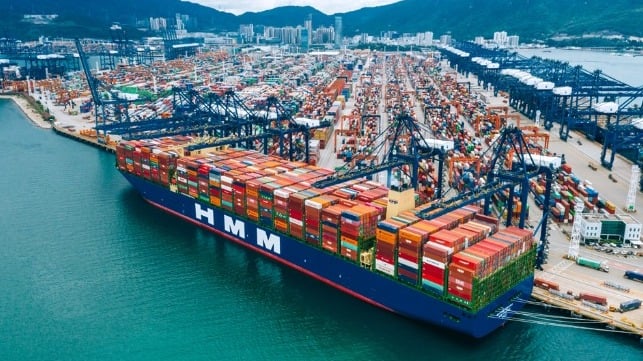South Korean Collaboration to Develop Smart Ship Technologies

In the latest effort to leverage technology and systems aboard the ship, two of South Korea’s leaders in shipping announced a new collaboration to develop smart ship technologies. Shipping company HMM and shipbuilder Samsung Heavy Industries signed a memorandum of understanding to pursue smart ship technology.
Under the terms of the agreement, the companies will collaborate on the research, development, and innovation in the field of smart ship solutions. They plan to focus on the development of eco-friendly technologies applicable to smart ships and the enhancement of technological competence related to the digitalization of ships.
"Both digitalization and decarbonization have become integral factors on the pathway to sustainable growth,” said HMM in the announcement of the new agreement. “HMM has concentrated on the exploration of new technologies for the future and has actively participated in various discussions,” they noted saying that “We look forward to taking this partnership to the next level with great synergy.”
As part of this partnership, HMM reported that it is also adopting SVESSEL, an advanced smart ship solution developed by SHI. According to Samsung, the cloud-based SVESSEL application aims to expedite the transition from analog-based conventional ships to "intelligent and life-cycle managed ships" through the convergence between ICT and ship operational technology. It provides a range of features, including vessel and fleet tracking, onboard data analysis, collaborative maintenance, and monitoring of propulsion performance.
HMM reports that it has installed the SVESSEL application on five of the new 24,000 TEU mega containerships delivered to the line this year. They plan to test the system in operations aboard these vessels.

that matters most
Get the latest maritime news delivered to your inbox daily.
HMM is also preparing to operate a ‘Smart Ship Control Centre’ that enables it to monitor the safety and efficiency of its ships in real-time. The center, which will be fully operational by mid-September, coordinates an extensive range of data including cargo information, service routes, locations, ocean weather, and vessel conditions.
Having entered service in 1976, and previously known as Hyundai Merchant Marine, the company today operates more than 100 vessels including a fleet of the world’s largest container ships, VLCCs, bulk carriers, trampers, heavy lifts, and special product carriers.
